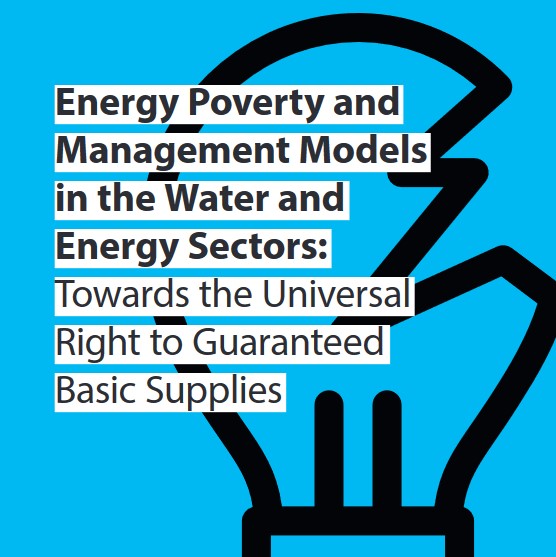
Energy Poverty and Management Models in the Water and Energy Sectors: Towards the Universal Right to Guaranteed Basic Supplies
The research critically analyses some measures applied to different Member States and points out the lines of action for an urgent and comprehensive change in how these models tackle energy poverty.

You can download the study from this link
In recent years we have seen how social awareness (and alarm) about fuel poverty has grown significantly, almost as fast as the population affected by this situation. In the Spanish State, however, it seems that this issue is hardly ever touched upon. Despite the fact that in the European Union there are Member States that have been applying palliative measures for years, here there is still not a marked path or an in-depth analysis to decide the actions to be developed against fuel poverty. Catalonia does have Law 24/2015, the result of a popular legislative initiative, which protects against indiscriminate cuts and provides for non-refundable aid for families in vulnerable situations, but the unfortunate events of the death of the neighbour from Reus were a turning point in the slow implementation of this law.
In this context, the research presented by ESF allows us to know other laws and measures that are applied in the face of the urgency of energy poverty throughout the EU: some are more focused on energy efficiency (such as the Eastern European countries), others on protection against supply cuts (such as the case of France), or on the application of discounts and social tariffs (such as the recent tariff approved in Portugal). Amongst these different examples, the study also detects approaches and policies that may result in patches, or even perpetuate situations of inequality (as is the case of pre-payment meters in the United Kingdom or solidarity funds paid for with public funds), far from providing comprehensive responses to the problem.
The research carried out explains how the scope of this problem, and the ways in which it can be combated, is related to the management models of basic services. The aim is not so much to extrapolate recipes automatically, but rather to learn from what has had a positive or negative impact, where and why, so as not to make mistakes that have already been detected, and to clarify the gaps that have not yet been reached and which make action difficult, such as aspects related to the very opacity of some of these models. In this sense, the lines of action for an urgent change in how these models address energy poverty are pointed out, in order to finally achieve a true guarantee of the universal right to basic supplies.
L’entrada Energy Poverty and Management Models in the Water and Energy Sectors: Towards the Universal Right to Guaranteed Basic Supplies ha aparegut primer a ESF.


0 comentarios